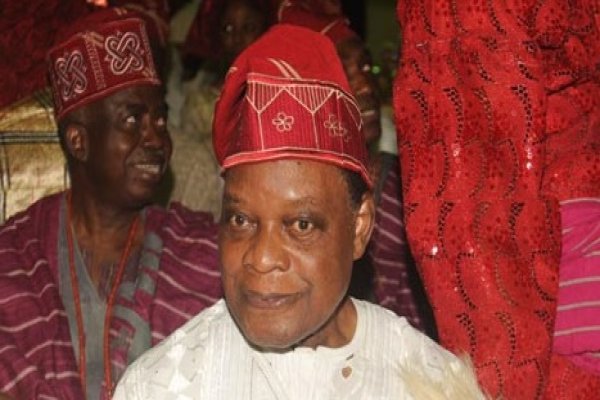Many years ago, I sat in the office of a big man who shall remain nameless- and he expressed serious concerns about what would happen after his demise. He had not yet put a succession plan in place. He did not like the fact that his daughters seemed to be doing better than his sons, and how the daughters, smart as they were had ended up in the hands of husbands he thought were completely unserious and the threat that unserious sons-in-law can pose to a rich man’s estate. He was worried about the future. Big men; big problems, I thought. What happens after a man is dead and gone?
I remembered him last week as I read the story of the matter between Chief Sonny Odogwu’s survivors and Access Bank over a matter of a N26.22 billion loan which by the effect of a judgement debt secured by Access Bank against two of the late Chief Odogwu’s companies – Robert Dyson and Dicket Limited and SIO Property Limited, and the beneficiaries of his estate, had now been placed at over N50 billion. Access Bank, plaintiff in the case, claimed that it granted various credit facilities to the late Chief Odogwu’s companies for the construction of Luxury Hotels and Apartments. The Court found in favour of the plaintiff and granted an order that the collaterals, that is security, for the said loans/facilities should be sold. There were other specific orders. The defendants took the matter to the Court of Appeal. Access Bank wants to enforce the judgment of Court. On December 20, ThisDay newspaper reported: “Access Bank Moves to Claim Late Sonny Odogwu’s Properties Over N50bn debt.”
It was the N50 billion that caught my attention. I have always been suspicious of Nigeria’s big men. Many years ago, when the Assets Management Company of Nigeria (AMCON) published a list of Nigeria’s most notorious debtors, I was shocked to find that most of the people on the list are those persons Nigerians call big men and women: the same ones that reporters struggle to praise to high heavens, media houses celebrate them and innocent people like me refer to as innovators, entrepreneurs, philanthropists, Nigeria’s diamonds… we write glowing profiles about the icons, the movers and shakers, the shapers, the titans of industry…but what that list exposed was that there were actually very few authentic rich people around. I asked: how can you be so heavily indebted and claim to be a big man? How do you sleep at night? That AMCON list settled the matter for me. Nobody should be called a rich man except you know how much he is owing the banks! Too many people in Nigeria going about in flowing gowns, disturbing traffic and snatching people’s girlfriends, with borrowed money! I was educated however by some people around me: that it is okay to be a chronic debtor and be a big man. Something like: Nobody uses their own money to do business. To do business, you borrow money. Interest rates can go up. Investments can fail. It is not every businessman that takes a loan, and deliberately wastes it.
Chief Sonny Odogwu was a man of great enterprise, and talent who helped to create strong legacies in the insurance business in Nigeria, industrial relations, real estate and hospitality. He was also the publisher of the defunct Post newspaper. He was also a strong community leader. He created jobs, touched many lives and carried himself with untainted dignity till the end. What the Access Bank case shows is that he left unfinished business behind. And it doesn’t seem to be the kind of unfinished business that honours his legacy or memory. The Ide Ahaba Sonny Dike Odogwu, CFR, was a glorious son of Asaba, and one of the best ambassadors from that community. The beneficiaries of his estate owe him a duty to preserve his memory and honour. If there is money being owed, just obey the courts, and let the living learn to build their own legacies. There are strong lessons to be learnt from the Sonny Odogwu business case study about banking, relationships, and succession. Above all, Access Bank owes a duty to protect depositors’ money!



